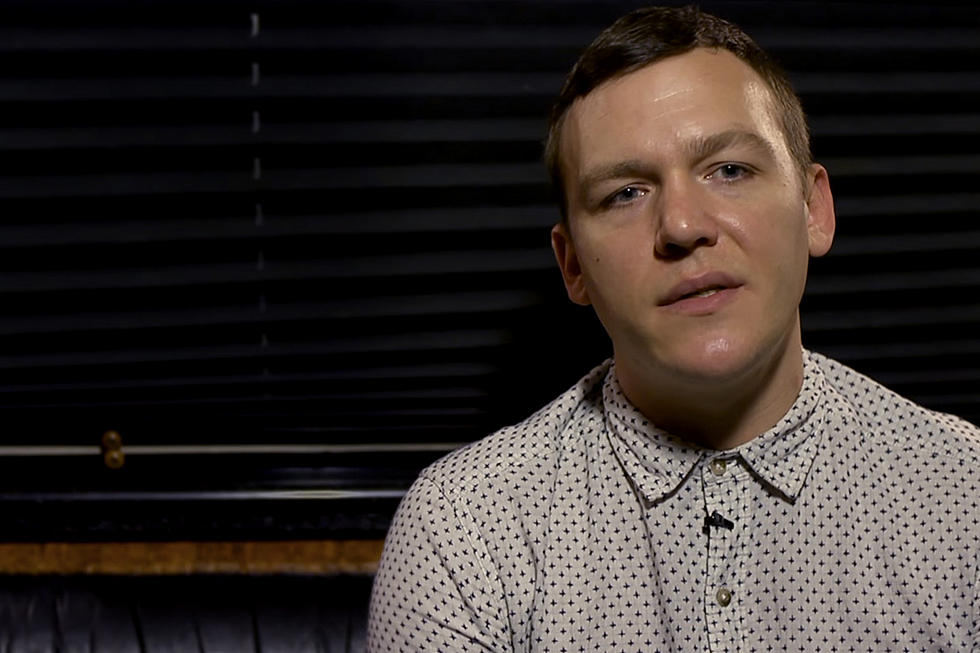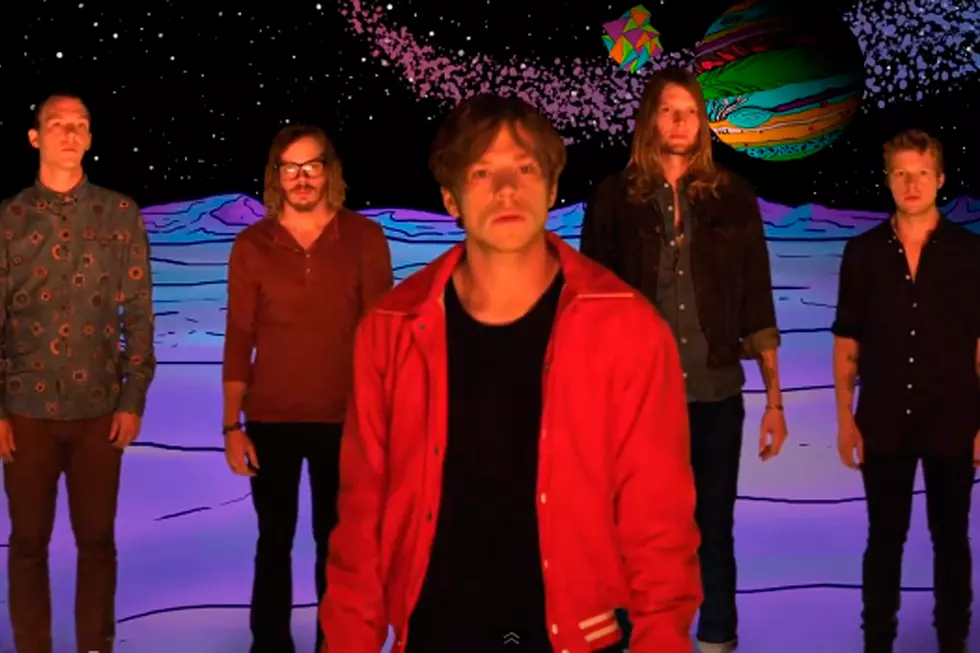
Cage the Elephant Discuss New Album ‘Melophobia,’ Touring With Muse + the Poetry of Everyday Life
It may seem easy to lump Cage the Elephant in with the rest of the radio-rock world, but with their third album, 'Melophobia,' it's clear they're not expecting to be lumped in with anyone.
Frontman Matt Shultz is passionate when talking about the album. It's not so much that he's trying to sell the band -- he's simply firm in his beliefs and eagerly hoping the record reaches audiences the way it's intended. Speaking in a thick Kentuckian accent, he laughs often and exudes a joy that's palpable and personality that's magnetic.
'Melophobia' lands tomorrow (Oct. 8), and in advance of the release, Shultz chatted with Diffuser.fm about the importance of honesty in songwriting, the poetry of everyday language, his childhood memories of music and keeping it together on a recent arena tour with Muse.
As you've mentioned, 'Melophoboia' is a amalgamation of influences, from Southern rock to Britpop. What's your personal music background, and how do you guys rectify your various tastes and influences?
My musical background is very dysfunctional [laughs]. My dad has been very influential on myself and my brother, but we never had any instruments around the house. So we would pick up instruments and learn our own way, very unconventionally, just making noise. And my dad would encourage us. He thought it was great that there was a certain beauty in that we were learning totally the wrong way. But, it allowed us to get very good, not learning from these old ideas that have been around for a while. It's just where we came from. Plus, my dad's a great songwriter.
We weren't exposed to a whole lot, being from a small town in Kentucky. So everything we would hear as far as music goes came from classic rock radio. We were listening to Bob Dylan and the Beatles and Hendrix and the Stones and the Who and artists like that. We weren't really exposed to music beyond that world until we moved over to England when I was around 22 to 23; we lived there for a year and eight months. It was an illuminating experience. We made some friends there and were being turned on to so much music. And from there it built.
You've said you didn't listen to current music while recording and wanted to draw on memories. And you didn't come from a traditional angle -- you were inspired more from messing around and making noise.
Yeah, I think there were a couple realizations to me this past winter, and to the band as a collective as well. First is the anomaly of the human fingerprint. How every person has qualities and characteristics that are totally unique from everyone else. And how we perceive things, like some things we can agree upon, like gravity, that we perceive the same, but then how we can tell stories so differently. It was like a string of lightbulb moments that shaped this creative process. In the past we've really held true to the adage that literature writers often use, which is read more than you write. So, we'd try to listen to as much music as we could and hopefully the music would be the combination of all those sounds and find pockets and holes, where people hadn't done the same thing we have, but it encompassed all the things we love about music.
So on this record we wanted to do it different and we stopped listening to music. We wanted to write songs and create things through memory. And, we did this because there is this overwhelming pull to make creative works that cater to "cool" or to make songs that are "artistic" or "intellectual" rather than just be a good, honest communicator, to express a thought or feeling or emotion. Aesthetic and style are great things, but when they become more important than the subject matter of the song, then it is like death to art. Music in its purest form is a communal thing, back to when it was a bunch of people in a tribe sitting around beating on drums and screaming about their qualms with life. It's our fear to get lost inside that, that draw to be cool or artistic or sound intellectual.
When you do that, you sound like you're trying to make a song, rather than just making a song. Like, it shouldn't sound like it was work -- it should be natural and effortless.
I have a friend, and he's a very perceptive guy, and we were discussing all this. And he made the suggestion to me that I should stop writing lyrics to sound poetic and just write lyrics how I speak in conversation, because that is poetic. But he was right. He was so right. That was one of those lightbulb moments. Every single day, there are people around you saying beautiful things, poetry in motion, and they're not even trying. It's like movies that have characters or events that are based on true situations from the writer's life. That kind of stuff can't be created. On this record, we tried to stay true to ourselves and our convictions and shed the protective cloaks and image we try to project.
And that honesty is what makes it come together. You can have these songs with different influences, and different sonic elements, but its the honesty that holds it together.
There is a song that hit me so hard. It's is an Etta James song, where she talks about almost cheating on her husband, and she has a drink and has a dance with a stranger and she's like, "I almost did, but then I saw the wedding ring." That type of honesty, like, going to your spouse and saying, "I almost cheated on you tonight." I thought that was very impacting.
You guys are opening for Muse in arenas across the country. How do you make sure the songs don't get lost in that huge environment?
I try not to think about it. We try to keep things unpredictable and perform as honestly as possible, and otherwise just don't think about it, because I could end up in the fetal position rocking back and forth if I did too much.
More From Diffuser.fm









